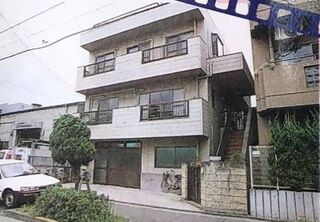Difference between revisions of "Studio 128"
From Sega Retro
(rewrite, created History section) |
|||
| Line 1: | Line 1: | ||
{{CompanyBob | {{CompanyBob | ||
| − | | logo= | + | | logo=Studio128 Building.jpg |
| founded=1984(?) | | founded=1984(?) | ||
| headquarters=Japan | | headquarters=Japan | ||
| Line 6: | Line 6: | ||
| next=[[Sega R&D 8]] | | next=[[Sega R&D 8]] | ||
}} | }} | ||
| − | {{sub-stub}}'''{{PAGENAME}}''' (スタジオ128) was a video game development group | + | {{sub-stub}}'''{{PAGENAME}}''' (スタジオ128) was a [[Sega of Japan]] video game development group of [[Sega of Japan]]. Led by [[Hisashi Suzuki]], the small studio was where programmer [[Yu Suzuki]] created classics such as [[Space Harrier]], [[Out Run]], and [[After Burner]]. |
| − | + | ==History== | |
| + | Located about a five minute walk from [[Sega of Japan]]’s main offices, Studio 128 was manned by five to ten employees which worked on Sega's cutting-edge [[Taikan game|Taikan games]]. Much of its work was kept a secret from the rest of the company. Reportedly even president [[Hayao Nakayama]] was once blocked from entering on one occasion (much to his dissatisfaction). | ||
| − | + | Studio 128 was not directly credited in any of their games, making it difficult to discern its history. It is known however to have become [[Sega R&D 8]] prior to the release of ''[[GP Rider]]'' in 1990; Sega R&D 8 would eventually become the more publically-known [[Sega AM2]] in the early 1990s. | |
| − | |||
| − | Studio 128 was not directly credited in any of | ||
| + | Only two games are known to reference the group's existence - in the introductions of ''[[After Burner]]'' and ''[[After Burner II]]'', players take off from an aircraft carrier labeled ''128''. | ||
==Softography== | ==Softography== | ||
{{CompanyHistoryAll|Studio 128}} | {{CompanyHistoryAll|Studio 128}} | ||
| − | |||
| − | |||
| − | |||
| − | |||
| − | |||
==References== | ==References== | ||
Revision as of 03:12, 17 April 2021
This teeny-tiny article needs some work. You can help us by expanding it.
Studio 128 (スタジオ128) was a Sega of Japan video game development group of Sega of Japan. Led by Hisashi Suzuki, the small studio was where programmer Yu Suzuki created classics such as Space Harrier, Out Run, and After Burner.
History
Located about a five minute walk from Sega of Japan’s main offices, Studio 128 was manned by five to ten employees which worked on Sega's cutting-edge Taikan games. Much of its work was kept a secret from the rest of the company. Reportedly even president Hayao Nakayama was once blocked from entering on one occasion (much to his dissatisfaction).
Studio 128 was not directly credited in any of their games, making it difficult to discern its history. It is known however to have become Sega R&D 8 prior to the release of GP Rider in 1990; Sega R&D 8 would eventually become the more publically-known Sega AM2 in the early 1990s.
Only two games are known to reference the group's existence - in the introductions of After Burner and After Burner II, players take off from an aircraft carrier labeled 128.
Softography
X Board
- After Burner (1987)
- After Burner II (1987)
Y Board
- Power Drift (1988)
- Power Drift (unreleased)
References
| Timeline of Sega of Japan research and development divisions |
|---|
|
83
84
85
86
87
88
89
90
91
92
93
94
95
96
97
98
99
00
01
02
03
04
05
06
07
08
09
10
11
12
13
14
15
16
17
18
19
20
21
22
|
